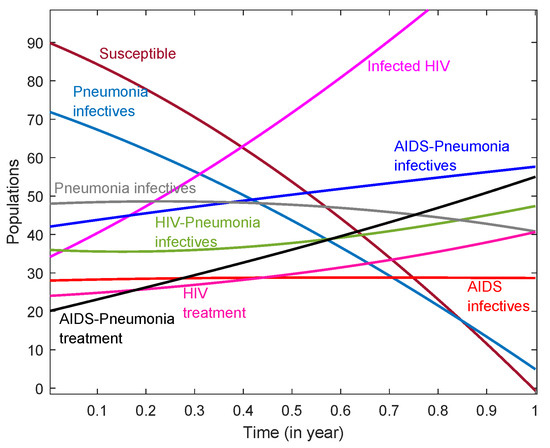Editorial Board Members’ Collection Series: Feature Papers in Mathematical Sciences
A topical collection in Foundations (ISSN 2673-9321). This collection belongs to the section "Mathematical Sciences".
Viewed by 3080Editors
Interests: boundary value problems; nonlinear analysis; differential and difference equations; fixed point theory; general inequalities
Special Issues, Collections and Topics in MDPI journals
Interests: control theory; dynamical system; fractional order systems; delay systems; stochastic system; partial differential equation
Special Issues, Collections and Topics in MDPI journals
Topical Collection Information
Dear Colleagues,
This Topical Collection will publish high-quality mathematical papers in the area of functional differential equations. Emphasis is placed on developments in the theory of delay differential, integrodifferential, impulsive differential, and difference equations and their applications. Possible paper topics include various boundary value problems; the positivity/negativity of their solutions; Green’s functions and their properties; existence and uniqueness solutions of nonlinear boundary value problems; optimization and control theory; stability theory; oscillation and non-oscillation; variational problems; and the use of functional differential equations in technology, economics, biology, and medicine.
In interdisciplinary approaches, which necessarily combine concepts and tools from different fields, mathematics is commonly the language used to merge all the different concepts into a unique model. Cross-border modeling and numerical simulation work within the subfields of physics and engineering are particularly welcome in this Topical Collection.
The scope of this Issue includes (but is not limited to) original research works providing characterizations, explanations, predictions of systems, and phenomena supporting the emergence of potentially novel, useful applications that can even be at a very early stage of conception. Papers based on advances in the theory of stochastic processes and stochastic models are also welcome. Papers devoted to local and nonlocal conditions and transference differential equations of heat and mass transference mathematical processes in continuous media with memory and in media with fractal structure will be considered. Papers shall investigate modified initial and mixed boundary value problems for generalized transfer differential equations of integral and fractional orders. The fields of qualitative and quantitative analysis of nonlinear evolution equations and their applications in image analysis are also of interest. Both analytical studies as well as simulation-based studies will be considered. We will cover mathematical problems in materials science, mathematical approaches to image processing with applications, applications of partial differential equations, recent advances in delay differential and difference equations, nonlinear optimization, variational inequalities and equilibrium problems, computational methods in analysis and applications, and all applied mathematical fields.
Prof. Dr. Ravi P. Agarwal
Prof. Dr. Dimplekumar N. Chalishajar
Collection Editors
Manuscript Submission Information
Manuscripts should be submitted online at www.mdpi.com by registering and logging in to this website. Once you are registered, click here to go to the submission form. Manuscripts can be submitted until the deadline. All submissions that pass pre-check are peer-reviewed. Accepted papers will be published continuously in the journal (as soon as accepted) and will be listed together on the collection website. Research articles, review articles as well as short communications are invited. For planned papers, a title and short abstract (about 100 words) can be sent to the Editorial Office for announcement on this website.
Submitted manuscripts should not have been published previously, nor be under consideration for publication elsewhere (except conference proceedings papers). All manuscripts are thoroughly refereed through a single-blind peer-review process. A guide for authors and other relevant information for submission of manuscripts is available on the Instructions for Authors page. Foundations is an international peer-reviewed open access quarterly journal published by MDPI.
Please visit the Instructions for Authors page before submitting a manuscript. The Article Processing Charge (APC) for publication in this open access journal is 1000 CHF (Swiss Francs). Submitted papers should be well formatted and use good English. Authors may use MDPI's English editing service prior to publication or during author revisions.
Keywords
- functional differential equations/fractional differential equations/dynamical differential equations/partial differential equations
- oscillation/non-oscillation
- feedback control, controllability, and stability, boundary value problems, coupled dynamics
- numerical simulation
- biological mathematics and engineering mathematics
- Markov chain and jump processes, fractional Brownian motion, and Rosenblatt process
- biological mathematics and engineering mathematics
- fractional processes, fractional integrals, space-time fractional equations.





